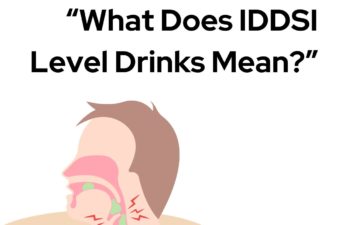Dysphagia, often described as difficulty or discomfort in swallowing, can be a challenging condition to manage for many people. It isn’t a disease in itself, but it is symptomatic of a variety of underlying medical or physical conditions, ranging from temporary and manageable to serious and long-term[^1^].
Understanding dysphagia and its causes can help inform strategies for care and symptom management, ensuring individuals living with dysphagia can maintain their nutrition and overall quality of life.
Oropharyngeal Dysphagia
Oropharyngeal dysphagia is one form of this condition, relating to problems originating in the mouth and throat[^2^]. It is frequently associated with neurological or muscular conditions, which can inhibit the coordinated muscle movements necessary for swallowing. The causes of oropharyngeal dysphagia can be quite varied:
- Neurological Disorders: Stroke is one of the most common causes of oropharyngeal dysphagia[^3^]. When a stroke occurs, it can affect the nerves responsible for initiating the swallowing reflex, making it difficult for sufferers to swallow. Other neurological conditions, such as Parkinson’s disease, multiple sclerosis, or amyotrophic lateral sclerosis (ALS), can also result in oropharyngeal dysphagia.
- Muscular Conditions: Conditions that affect the muscles can also cause oropharyngeal dysphagia. In cases of myasthenia gravis or muscular dystrophy, muscle weakness can make it difficult to initiate and complete the swallowing process[^4^].
- Structural Abnormalities: Physical abnormalities in the mouth or throat can contribute to oropharyngeal dysphagia. For example, a cleft lip and palate can make it difficult to create the seal necessary for swallowing, while Zenker’s diverticulum (a pouch that forms at the junction of the throat and the esophagus) can interfere with the movement of food down the throat[^5^].
Esophageal Dysphagia
Esophageal dysphagia, on the other hand, involves problems with the esophagus. The muscles and nerves in the esophagus must work together to move food and liquid from your mouth to your stomach, and when these don’t work properly, it can cause dysphagia. This can be due to several causes, including:
- Gastroesophageal Reflux Disease (GERD): This chronic condition, where stomach acid frequently flows back into the esophagus, can irritate and eventually damage the lining of the esophagus, leading to difficulties with swallowing[^6^].
- Esophageal Tumors or Narrowing: Any condition that narrows the esophagus, such as tumors or scarring from radiation therapy, can cause dysphagia[^7^].
- Autoimmune Conditions: Certain autoimmune conditions, such as scleroderma, can cause the muscles in the esophagus to harden and narrow, leading to dysphagia[^8^].
The Role of Innovative Solutions in Managing Dysphagia
While dysphagia can be a challenging condition to manage, advancements in technology and care practices have provided new ways to ensure individuals with this condition can maintain their nutritional health and hydration.
For example, Refreshment Systems has partnered with several manufacturers to develop a unique dysphagia drinks machine. This innovation is specifically designed to prepare beverages at safe consistencies for individuals with dysphagia, thus significantly reducing the risk of aspiration and improving quality of life.
These machines not only allow for the preparation of a wide selection of beverages but also ensure an exact International Dysphagia Diet Standardisation Initiative (IDDSI) level every time. Furthermore, they are designed to reduce waste and are amylase resistant, which ensures the beverages maintain their consistency even when they get cold.
Personal Story: Dealing with Dysphagia
To understand the daily challenges of living with dysphagia, let’s look at a fictional account of John, a stroke survivor. John had a stroke two years ago, which left him with swallowing difficulties. He found it especially challenging to swallow thin liquids and needed to thicken his beverages to a ‘nectar-like’ consistency to swallow safely.
Before the introduction of the dysphagia drinks machine in his care facility, it was a time-consuming process to manually thicken his drinks to the appropriate consistency. There was also the issue of the beverages having a slimy texture, which affected John’s enjoyment of his favourite drinks.
With the introduction of the dysphagia drinks machine, John’s care facility was able to provide him with a variety of beverages at the correct consistency at the touch of a button. Not only did the machine save time for the caregivers, but it also improved the taste and texture of the drinks, making meal times more enjoyable for John.
This story highlights how innovative solutions like the dysphagia drinks machine can make a significant difference in the lives of individuals living with dysphagia.
Dysphagia: A Condition That Requires Attention
While dysphagia can indeed be a complex condition to manage, understanding its causes
and symptoms can help those affected by it and their caregivers navigate their journey with greater ease. Importantly, it’s essential to remember that anyone experiencing difficulty swallowing should consult a healthcare professional for accurate diagnosis and appropriate treatment.
It is through innovative solutions like the dysphagia drinks machine and a greater understanding of dysphagia itself that we can ensure a higher quality of life for those affected by this condition.
[^1^]: National Institute on Deafness and Other Communication Disorders, Dysphagia
[^2^]: Mayo Clinic, Dysphagia
[^3^]: American Speech-Language-Hearing Association, Adult Dysphagia
[^4^]: National Institute of Neurological Disorders and Stroke, Myasthenia Gravis Fact Sheet
[^5^]: National Institute of Diabetes and Digestive and Kidney Diseases, Zenker’s Diverticulum
[^6^]: NHS, Gastro-oesophageal reflux disease (GORD)
[^7^]: American Society of Clinical Oncology, Esophageal Cancer: Symptoms and Signs
[^8^]: NHS, Scleroderma




